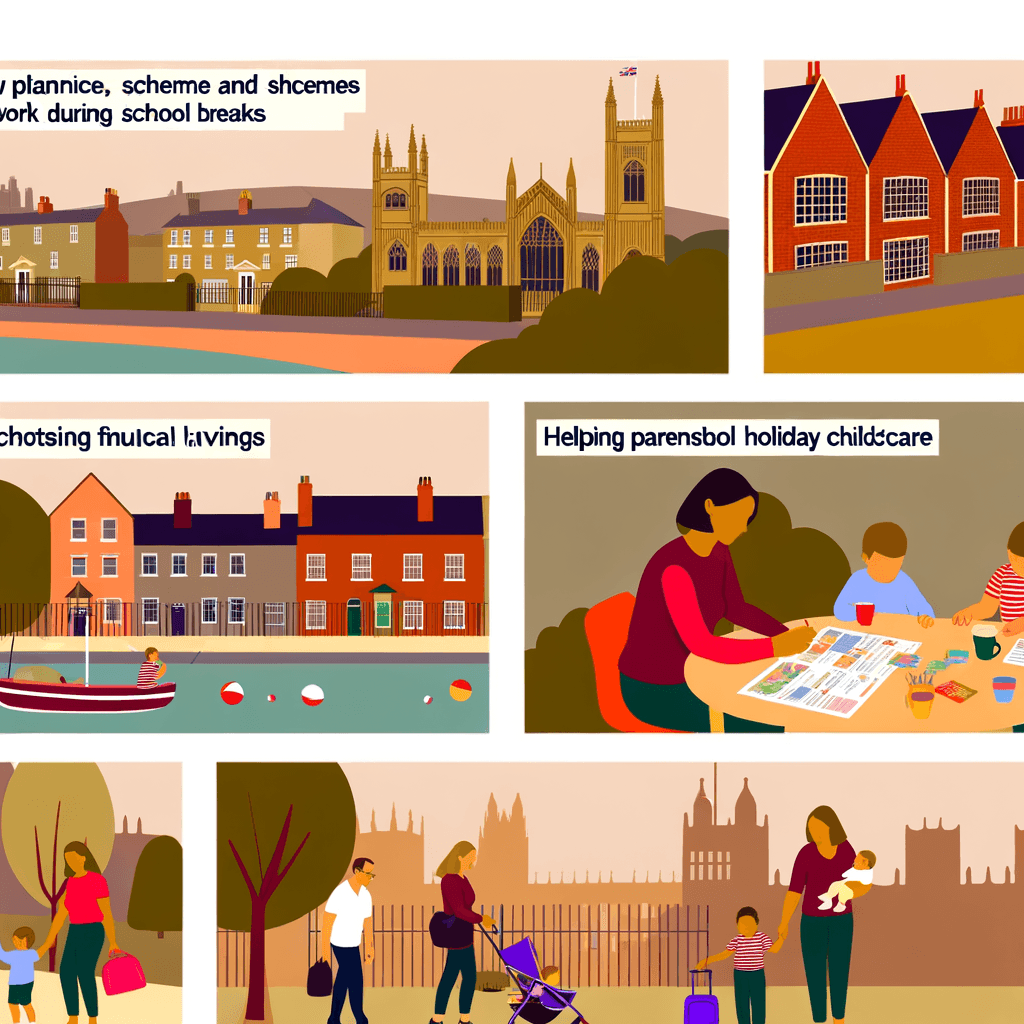Navigating Holiday Care for Primary School Children in the UK
Discover the best options for holiday care for your primary school children, including government support schemes and budget-friendly choices. Learn how to balance work and family life during school breaks with our comprehensive guide.
James Wilson
Chartered Financial Planner (CFP)

Navigating Holiday Care for Primary School Children in the UK
School holidays can be a joyful time for children but often a logistical nightmare for working parents. With the average UK primary school holiday lasting about 13 weeks annually, many parents are left wondering how to provide quality care without breaking the bank. But fear not! Whether you're looking for government support, budget-friendly options, or flexibility to balance work and family life, this guide has you covered.
Understanding Your Options
1. Government Support Schemes
The UK government offers various schemes to assist parents with childcare costs. Here’s a breakdown of some you should consider:
-
Tax-Free Childcare: For every £8 you pay into your childcare account, the government adds an extra £2, up to £2,000 per child per year. If you have a disabled child, this limit increases to £4,000. To be eligible, both parents need to be working (or the single parent in a lone-parent family) with each earning at least the National Minimum Wage for 16 hours a week.
Pro Tip: Apply online through the government website. It’s a straightforward process that can lead to significant savings.
-
15/30 Hours Free Childcare: If you have children aged 3-4, you can access 15 hours of free childcare per week, extending to 30 hours if both parents are working. Note that this scheme is typically term-time only, but some providers allow you to stretch the hours across the year, including school holidays.
-
Universal Credit Childcare Element: If you're eligible for Universal Credit, you can claim back up to 85% of your childcare costs, up to £646.35 per month for one child and £1,108.04 for two or more children.
2. Holiday Clubs and Camps
Holiday clubs are a popular choice for many parents. They offer structured, safe environments where children can socialize and learn new skills. Options vary from sports camps, arts and crafts workshops, to STEM activities. Prices can range from £20 to £50 per day, depending on the location and the activities offered.
Pro Tip: Book early to secure a spot and possibly nab an early-bird discount. Also, check if the club is registered with Ofsted to use Tax-Free Childcare benefits.
3. Family and Friends Network
Leveraging your family and friends' network can be a lifesaver. It not only saves money but also strengthens family bonds. Consider setting up a rota with other parents—this way, you can take turns hosting the children, making it a fun experience for the kids while sharing the load.
4. Flexible Work Arrangements
Discussing flexible work arrangements with your employer can relieve the pressure during school holidays. Options include:
- Working from Home: Allows you to manage work and childcare more effectively.
- Compressed Hours: Work longer hours on fewer days, freeing up a day or more for childcare.
- Annualised Hours: Spread your hours over the year, allowing you to take more time off during school breaks.
Budget Planning for Holiday Care
Creating a realistic budget for holiday childcare can prevent financial strain. Here’s how you can plan effectively:
-
Calculate Total Costs: Add up all potential holiday care expenses, including clubs, camps, and any additional childcare needed.
-
Utilize Comparison Tools: Websites like Childcare.co.uk can help compare local childcare providers and costs. Using these tools can ensure you’re getting the best deal.
-
Prioritize Spending: Determine what aspects of childcare are most important to you (e.g., educational value, convenience, cost) and allocate your budget accordingly.
-
Set Aside a Holiday Fund: Start saving well in advance. Even setting aside a small amount each month can make a significant difference when holiday time arrives.
Addressing Working Parent Challenges
Emergency Care Solutions
Despite the best planning, unexpected situations can arise. Having a backup plan is essential:
-
Emergency Childcare Services: Some agencies offer last-minute childcare solutions. Although slightly pricier, they provide peace of mind when regular plans fall through.
-
Parent Networks: Engage with local parent groups through social media platforms like Facebook. They can be invaluable for finding last-minute solutions or recommendations.
Regional Variations
Costs and availability of holiday care can vary significantly depending on your location:
-
London: Expect higher costs due to demand and living expenses. However, a wider variety of options might be available.
-
Rural Areas: While potentially cheaper, options may be more limited. Consider travel costs if you need to access services outside your immediate area.
Life Stage Considerations
As your child grows, their holiday care needs will evolve:
-
New Babies and Toddlers: Focus on finding care that provides a nurturing environment with age-appropriate activities.
-
School-Age Children: Look for programs that balance fun with educational value, particularly those that complement their school curriculum.
Actionable Next Steps
-
Review Your Eligibility: Check your eligibility for government schemes and apply as soon as possible.
-
Research Early: The earlier you start looking for holiday care, the more options (and better prices) you'll find.
-
Establish a Network: Connect with other parents to share advice, resources, and childcare duties.
-
Communicate with Your Employer: Discuss potential flexible working arrangements well in advance of school holidays.
-
Keep an Eye on Offers: Sign up for newsletters from local clubs and camps to catch early-bird discounts and promotions.
Navigating holiday care for primary school children in the UK doesn't have to be overwhelming. With the right planning, support, and resources, you can enjoy a stress-free school break that works for both you and your child. Happy planning!